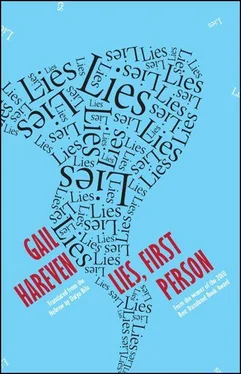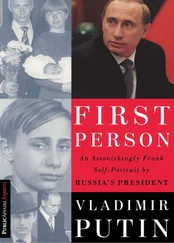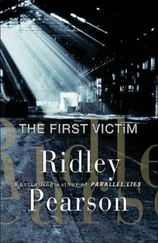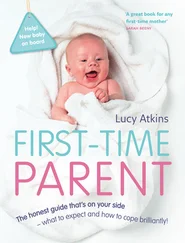I won’t say that he felt my breast. While it was happening I couldn’t be sure. His hand groped up my ribs, a little above the waist, the fingers were outspread, and something, a raised thumb, moved and fastened itself under my armpit.
I’m not claiming trauma. I didn’t experience any trauma, just a trivial and off-putting event. Every woman in the course of her life experiences ambiguous events of this kind.
My reaction to the thumb was instinctive. “Instinctive” I say; I latch onto instinct because I have no other excuse for what I did. Because what I did was this: I shook off his hand and stepped forward, took the camera from my sister, and said curtly: “I’ll take the picture.”
Our mother murmured “pity” and “souvenir,” but my voice and expression were the same voice and expression that forced my parents to let me go to boarding school and to pay my fees: on my face — I know — was the same expression with which I ignored my mother’s warnings that, if I left home, she would have a heart attack; the expression that even when I was a child would make her say ingratiatingly to the guests: “Sometimes that child frightens me.”
“I’m not being photographed. I’m taking the picture,” I repeated. And with these words I sent my sister to take my place.
And it could have been different. In retrospect it’s clear that there was a different way, and not only one but several. The voice that knew how to talk could have said different things. The body was free to go and not to take the camera or her sister’s place.
I don’t want to exaggerate the importance of this picture. I didn’t cause my sister to be raped, I know. It’s very possible that the abuse began before, and in any case, even if I hadn’t sent her into his hands, he would have abused her anyway.
My sister joined the line. She was photographed. I took the picture. That’s all that happened. A matter of seconds.
I never saw the photographs. I assume my parents had the film developed. When my father made haste to sell the pension, property that had been accumulated for years was removed or thrown out in a few days, and it’s possible that the evidence was thrown out with the garbage — in any case, what can you already learn from a photograph, and what can a photograph add to what I saw with my eyes?
Portraying an event that was over in a few seconds as a great drama is pointless, and in most cases is also a kind of lie: true betrayal creeps up slowly and lasts longer.
Traitors have hour after hour, day after day, in which they could choose differently.
Reality as it is, is never concentrated into one symbolic picture, and focusing the eye on a single picture is nothing but a literary device; an impudent sleight of hand, just like directing our attention to a bit of dust so we won’t notice the other dirt.
No, I won’t exaggerate the significance of this event or inflate its symbolism. It’s true that after Oded told me about the intrusion of the snake, this picture stuck in my mind, that’s true, but the mind is a capricious organ, and one of its caprices, one of its associative twists, certainly doesn’t account for the entire unfolding of my plot.
Be that as it may, this was the picture I thought about, this was the one that stuck in my mind, and by the time Oded, fresh and pink, emerged from the shower, I knew what I had to do.
“I have to talk to Elisheva.”
Tired from the day’s work and the scalding water he likes to shower in, my husband confirmed I might be right, if that’s how I really felt, and somehow it seemed to me that he hadn’t understood what I said. “We have to warn her,” I added, “if he found us, he might find her too. These days you can find anyone.”
Only about an hour later, when his breathing turned into the breathing of sleep, I realized that he still hadn’t understood, and I said out loud: “What I meant to say is that I’m going to go see her in America.”
After my sister met her redeemer, converted to Christianity, and married, we lost contact. In the days when I was living in my lair in Nahlaoth I didn’t even have her phone number, and it was only when I got married myself that a tenuous relationship with big intervals in time came into being between us.
In order to maintain the kind of telephone relationship I’ve had with my sons since they went to America, there needs to be common ground on which news can be exchanged: and the new Christian continent where my sister lived in her new incarnation was too far for me to be able to relate to it.
There was nothing that could be taken for granted between us, not even holiday greetings. Should I call her on my New Year? Was it still in some way hers? “Passover and Easter are the same thing,” she promised, but how did I know when Easter fell, and what did you ask a sister preparing for Easter: do you buy ready-made harosset or make it yourself? And what was the point in talking about harosset in the first place? I didn’t want to talk to her about harosset and most of the time I didn’t want to talk to her about anything else, either. We had talked enough: the months when her demented ravings had held us in their grip, before she left for America, had apparently exhausted my strength to listen to her, and my life was full of other voices demanding my attention.
In later years, when the boys were already older, Elisheva, who from childhood had experienced difficulty in writing, discovered email as a means through which she was able to express herself in text. And since then every few months I would receive a well-written composition in English, whose lower margins were decorated with deer footprints. The person who composed these decorated compositions was a complete stranger, but in one of them I was informed of the birth of my niece Sarah, and this was already after it had seemed that my sister and her Barnett would not bring any children into the world.
Elisheva wrote that she was blessed, and that an entire lifetime would not suffice to give thanks for the grace of this fertility of which she was certainly unworthy. But even before the birth of Sarah she would enthusiastically list the blessings showered on her by God in every letter: the beauty of the autumn foliage in Illinois; a member of the church congregation who had ridden his horse into a truck and escaped unhurt. A checked jacket of Barnett’s that had been lost and found by a stranger who became a friend — the hand of God was visible in all these things.
Under the personal supervision of a benevolent God and a benevolent husband, it was clear that my sister was in no need of my supervision, which had in any case been found wanting. I sent a box full of expensive gifts for the baby, my sister replied with exaggerated expressions of gratitude, and I deleted her reply just as I deleted everything else, and went back to tending my vine.
Nobody will ever know what my sister intended to do on the evening she locked herself in the girls’ showers on base 12 with an Uzi. She probably didn’t know herself, and I — who was away that week on a class trip, and only found out when I returned — definitely don’t know.
I wasn’t there during the four hours she locked herself in before she was persuaded to give up the weapon, I wasn’t there when she was hospitalized, I didn’t visit her in Kfar Shaul, and I wasn’t present at the session when she told our parents about the abuse.
My role in this part of the story is that of the person who wasn’t there.
Months later I heard from a graduate of the boarding school who was an officer on the base that “there were actually warning signs, the kind that are hard to ignore.” Other girls complained that Elisheva didn’t shower, that she slept in her uniform, that she was maddeningly slow, and that it wasn’t fair for the whole unit to be punished because of one soldier. “It was hard to ignore,” the officer said, but in the end everyone overcame the difficulty and succeeded in ignoring it.
Читать дальше












